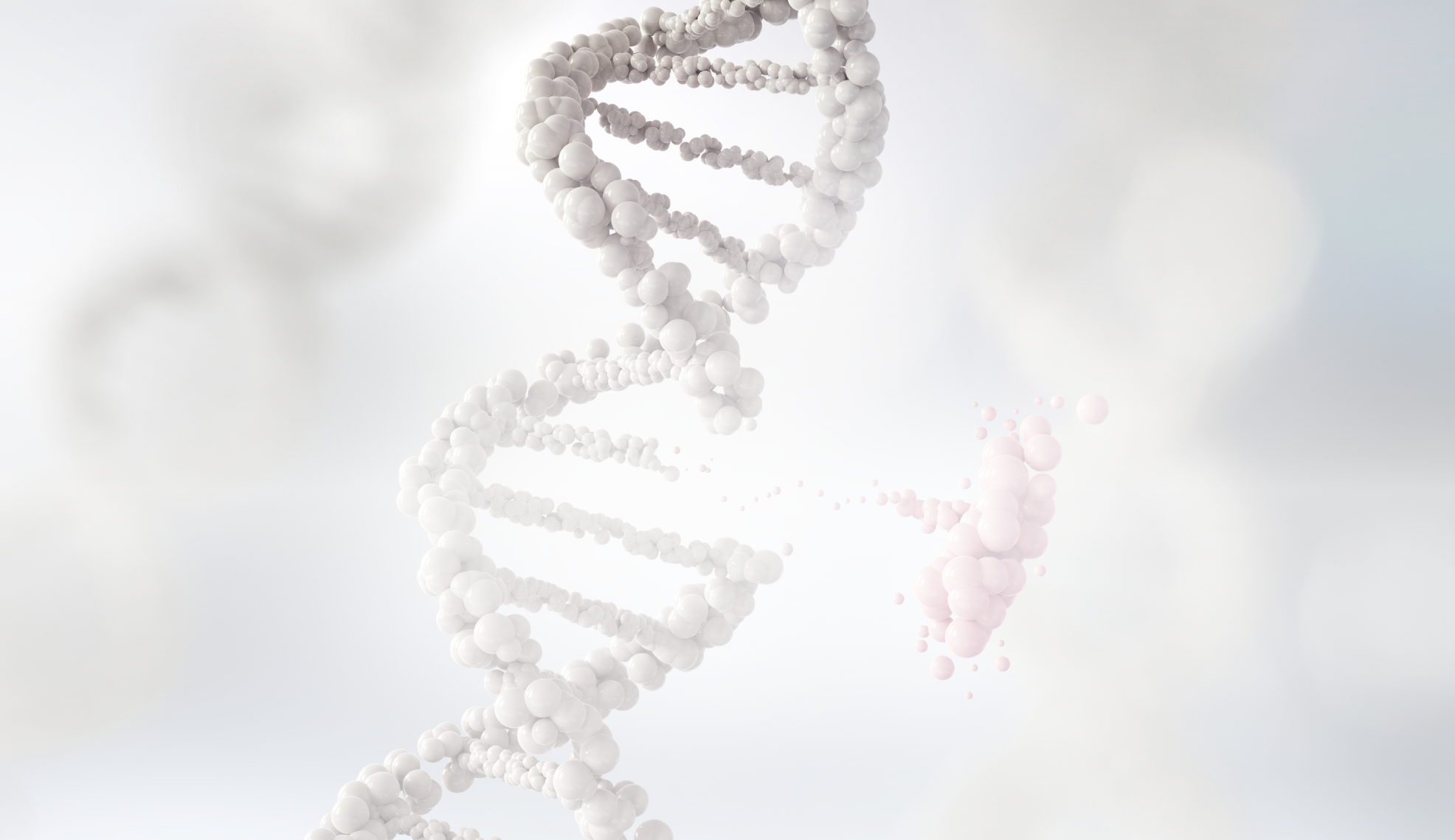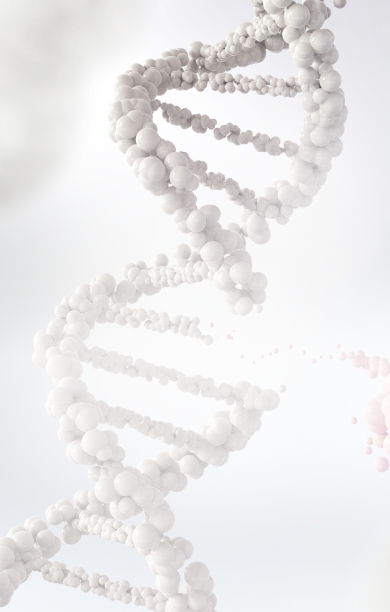


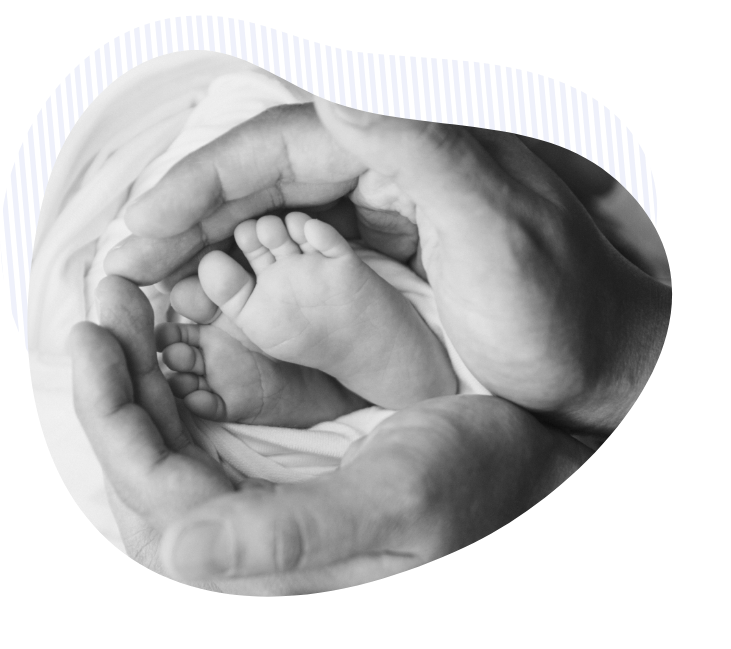



Preimplantation Genetic Test
with us.

The team at American Hospital’s Fertility Center believes in providing the most comprehensive options to deliver the best possible outcomes, including safe pregnancy and healthy baby,through detection of chromosomal abnormalities and genetic defects in embryos.
Preimplantation Genetic Testing (PGT-A) is an advanced assisted reproductive technology, often used in conjunction with in-vitro fertilization (IVF), to detect genetic and chromosomal alterations in the embryos. PGT helps prevent the transmission of serious illnesses to the offspring; hence ensuring a child is born free of hereditary disease(s).
Who Can Benefit from Preimplantation Genetic Test?
Further to minimizing the chance of having a child with a chromosomal or genetic condition, PGT has also proven to be helpful in the increase of implantation rates and pregnancy rates and in the reduction of pregnancy losses. Therefore, individuals or couples trying to conceive a healthy baby, are often prescribed PGT if they have:
- Known genetic abnormalities
- Few or no ejaculated sperm
- Been diagnosed with inheritable diseases
- Have recurrent pregnancy loss
- Repeated implantation failure
- Advanced maternal age


Types of PGT Offered at American Hospital IVF Center:
1
STEP
STEP
PGT-A, allows embryologists to identify Euploid and Aneuploid embryos. Euploid refers to a normal healthy embryo that contains the correct number of chromosomes per cell. On the contrary, aneuploid carries incorrect number of chromosomes per cell, and has a high likelihood of producing a child with a genetic disorder like Down syndrome or Turner syndrome.
PGT-A is carried out to ensure high pregnancy rate, reduced miscarriage rate, and an increased chance of delivering a healthy child.
.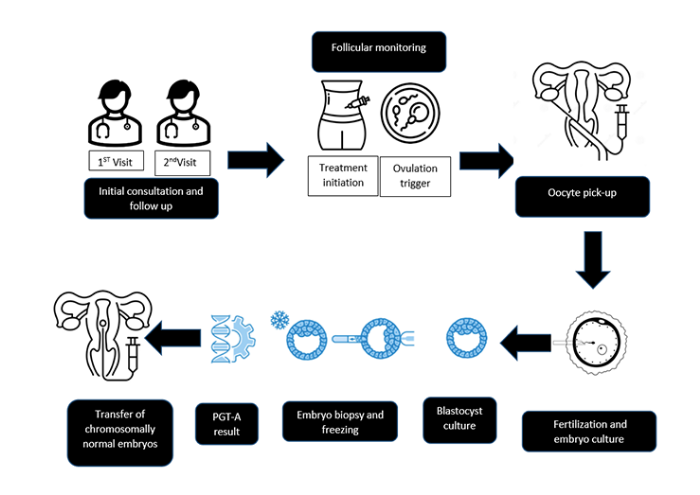
2
STEP
STEP
Preimplantation Genetic Testing (PGT-M), is generally carried out for the evaluation of embryos in order to detect monogenic/single gene disorders specifically. At American Hospital’s IVF facility, our embryologists are able to screen embryos for a wide range of single gene genetic disorders, such as: BRAC1, BRAC2, Cystic Fibrosis (CF), and Huntington’s Disease etc. PGT-M is indicated to individuals, who are the carriers of a specific genetic condition, as they are at high risk of passing it onto their next generation.
This test is performed prior to embryo transfer into the uterus. Once embryos are cultured through in-vitro fertilization (IVF) and grown to blastocysts stage, the biopsies are sent to the genetic lab for analysis. Embryos identified with a single gene disorder are discarded, whereas embryos, unaffected by the genetic transfer, are kept for use. The healthy embryo is carefully placed into the uterus for implantation, hence ensuring a safe and healthy baby. Remaining embryos are frozen and stored for their use in future.
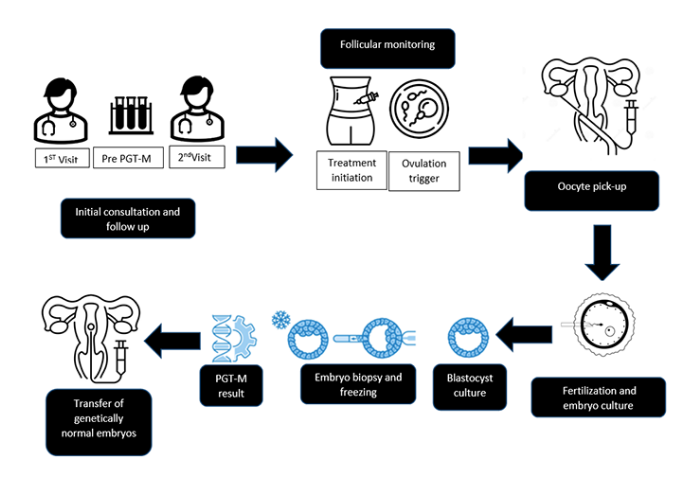
3
STEP
STEP
If you or your husband is a carrier of an inversion, reciprocal translocation, or if you had a baby with a chromosome rearrangement, the structural rearrangement PGT can enhance the safety and success of your treatment. PGT-SR is also prescribed to the carriers of Robertsonian translocation to look at chromosome number or structure. It involves testing embryos cultured through in-vitro fertilization (IVF), and identifies the normal embryos that can be inserted into the uterus for implantation.
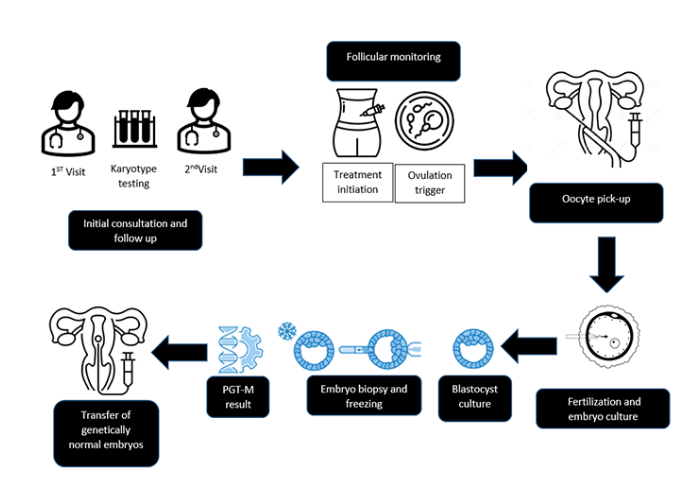

Schedule an Appointment
Reproductive Endocrinology at American Hospital’s IVF Center offers patients personalized, compassionate, and premium fertility care, and is dedicated to patient-focused care. If you’re concerned about the transmission of any hereditary disease into your next generation, please make an appointment with our Reproductive Specialists online, and learn how you can benefit from preimplantation genetic test in Dubai.
BOOK NOW



